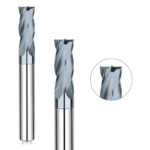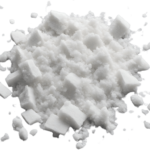Introduction
Fitosterina refers to a group of plant-derived compounds that bear structural similarities to cholesterol. Despite being structurally similar to cholesterol, It is not synthesized by the human body. Instead, we obtain it through dietary sources. It has gained significant attention due to its potential health benefits, particularly in the realm of cardiovascular health.
Sources of Fitosterina
It is abundantly found in various plants, including fruits, vegetables, nuts, and seeds. Some of the richest sources of Fitosterina include soybeans, nuts (such as almonds and walnuts), seeds (such as flaxseeds and pumpkin seeds), and whole grains. Additionally, It can be found in certain cooking oils, such as olive oil and corn oil.
Health Benefits of Fitosterina
Lowering Cholesterol Levels
It has been extensively studied for its ability to lower LDL (bad) cholesterol levels in the blood. By inhibiting the absorption of cholesterol in the intestines, It helps reduce the risk of cardiovascular diseases, such as heart attacks and strokes.
Cardiovascular Health
In addition to lowering cholesterol levels, It promotes cardiovascular health by improving blood circulation and reducing inflammation in the arteries. Regular consumption of Fitosterina-rich foods may help lower blood pressure and reduce the risk of developing heart disease.
Anti-inflammatory Properties
It exhibits potent anti-inflammatory properties, which can benefit individuals suffering from chronic inflammatory conditions, such as arthritis and inflammatory bowel disease. By reducing inflammation in the body, It helps alleviate pain and discomfort associated with these conditions.
Potential Cancer Prevention
Some studies suggest that It may have anti-cancer properties, particularly in preventing certain types of cancers, such as breast and prostate cancer. However, more research is needed to fully understand the role of Fitosterina in cancer prevention.
Immune System Support
It enhances the immune system’s function, helping the body defend against infections and diseases. By stimulating the production of white blood cells, Fitosterina strengthens the body’s natural defense mechanisms, thereby promoting overall health and well-being.
Role of Fitosterina in Weight Management
It plays a significant role in weight management by boosting metabolism and promoting satiety. By increasing the body’s metabolic rate, It helps burn calories more efficiently, making it easier to maintain a healthy weight. Additionally, Fitosterina helps control appetite, reducing the likelihood of overeating and weight gain.
Fitosterina Supplements
Its supplements are available in various forms, including capsules, tablets, and powders. These supplements are often derived from plant sources and are marketed as a convenient way to increase Fitosterina intake. However, it’s essential to consult with a healthcare professional before starting any supplement regimen, as excessive Its intake may have adverse effects, especially for individuals with certain medical conditions or those taking medications.
Incorporating Fitosterina into Diet
One of the most effective ways to increase and intake is by incorporating Its-rich foods into your diet. You can add nuts, seeds, and whole grains to your meals, use Its-rich oils in cooking, and enjoy plant-based snacks to boost your consumption. By making simple dietary changes, you can reap the numerous health benefits of Fitosterina while enjoying delicious and nutritious foods.
Fitosterina and Skin Health
It possesses antioxidant properties that help protect the skin from damage caused by free radicals. By neutralizing free radicals, Fitosterina reduces the signs of aging, such as wrinkles and fine lines, and promotes a youthful and radiant complexion. Additionally, It may help soothe irritated skin and alleviate symptoms of inflammatory skin conditions, such as eczema and psoriasis.
Fitosterina and Hair Health
It strengthens the hair follicles, making them less prone to breakage and damage. By promoting hair growth and preventing hair loss, It helps maintain healthy and luscious locks. You can incorporate Fitosterina-rich oils, such as argan oil and coconut oil, into your hair care routine to nourish and strengthen your hair from roots to tips.
Fitosterina and Bone Health
It plays a vital role in maintaining bone density and preventing osteoporosis, a condition characterized by weak and brittle bones. By enhancing calcium absorption and promoting bone formation, It helps keep your bones strong and healthy as you age. Including Fitosterina-rich foods in your diet, such as leafy greens and tofu, can contribute to optimal bone health and reduce the risk of fractures and bone-related disorders.
Fitosterina and Hormonal Balance
It helps regulate estrogen levels in the body, making it particularly beneficial for women experiencing hormonal imbalances, such as menopausal symptoms. By modulating estrogen activity, Fitosterina may help alleviate hot flashes, mood swings, and other menopausal symptoms, improving overall quality of life during this transitional phase.
Side Effects and Precautions
While It is generally safe for most people when consumed in moderation, excessive intake may cause side effects, such as digestive issues and allergic reactions. Additionally, Its supplements may interact with certain medications, including cholesterol-lowering drugs and blood thinners. Pregnant and breastfeeding women should exercise caution when consuming Fitosterina supplements and consult with a healthcare professional before doing so.
Research and Studies on Fitosterina
Numerous research studies have been conducted to explore the health benefits of Fitosterina. Clinical trials have demonstrated its efficacy in lowering cholesterol levels, reducing inflammation, and supporting overall health. However, more research is needed to fully understand the mechanisms of action and long-term effects of Its on human health.
Incorporating Fitosterina into Daily Routine
Incorporating It into your daily routine is easy and convenient. You can start by adding Fitosterina-rich foods to your meals, such as smoothies, salads, and stir-fries. Experiment with different recipes and cooking techniques to make your meals more nutritious and flavorful. By making small changes to your diet and lifestyle, you can enjoy the numerous health benefits of Its and improve your overall well-being.
Conclusion
Fitosterina, or plant sterols, offer a myriad of health benefits, ranging from lowering cholesterol levels to supporting cardiovascular health and beyond. By incorporating Its-rich foods into your diet and considering supplements under medical supervision, you can harness the power of these natural compounds to enhance your health and vitality. Embrace It as part of your daily routine and embark on a journey towards optimal health and well-being.
FAQs
1. What are the best sources of Its?
- Some of the best sources of Fitosterina include nuts, seeds, whole grains, and certain cooking oils, such as olive oil and corn oil.
2. Can Fitosterina supplements interact with medications?
- Yes, Its supplements may interact with certain medications, including cholesterol-lowering drugs and blood thinners. It’s essential to consult with a healthcare professional before taking Fitosterina supplements, especially if you’re taking medications.
3. Is Fitosterina safe during pregnancy?
- Pregnant and breastfeeding women should exercise caution when consuming Its supplements and consult with a healthcare professional before doing so. While it is generally safe for most people, it’s essential to ensure its safety during pregnancy and breastfeeding.
4. How much Fitosterina should I consume daily?
- The recommended daily intake of Fitosterina varies depending on individual health needs and dietary preferences. However, consuming 2 grams of its per day has been shown to lower LDL cholesterol levels by approximately 10%.
5. Are there any natural alternatives to Fitosterina supplements?
- Yes, you can increase your Fitosterina intake by incorporating Its-rich foods into your diet, such as fruits, vegetables, nuts, seeds, and whole grains. These natural alternatives offer a convenient and nutritious way to boost your consumption without relying on supplements.







